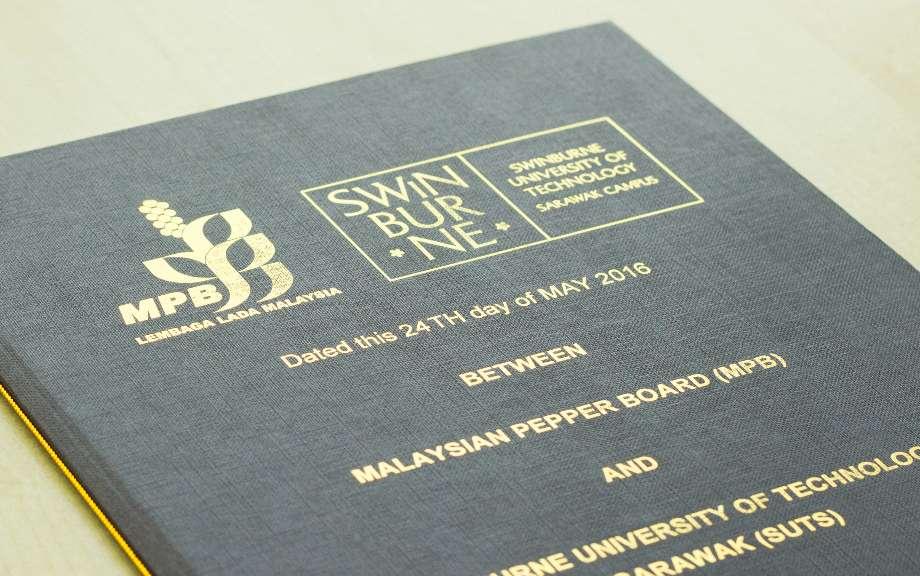Malaysian Pepper Board signs agreement with Swinburne Sarawak
Tuesday 24 May 2016

Pepper has been the king of the spice trade since antiquity and is more than simply being food; it’s a currency and Malaysia is one of the largest producers of black pepper in the world. In 2015, Malaysia produced 28,300 tons of pepper with export value of RM 514 million. Interestingly, 95% of all Malaysian pepper comes from Sarawak, which is known for its unique earthy flavour. Demand for pepper is increasing at 7% on a yearly basis and production has a growth rate of a mere 0.7%. White pepper prices are at a premium and have remained consistent, making this business even more lucrative. The potential for growth is huge, and the government has asked the Malaysian Pepper Board to step up its output by 30%.
“But stepping up production is not that simple” says Dato Grunsin Ayom, Director-General of the Malaysian Pepper Board. “There are numerous issues surrounding the growth of the humble pepper, the two biggest being fighting off diseases and finding the best possible ways to cultivate which can ripen at the same time.” Faced with these issues the research arm of the Malaysian Pepper Board has signed an agreement with Swinburne Sarawak to collaborate on finding solutions to these problems. Dato Ayom stated, “these issues are best solved through biotechnology and Swinburne is well placed to assist us in this. It will also result in us using fewer pesticides which is much better for our ecology.”
Swinburne Sarawak has a long standing history of collaboration with the Malaysian Pepper Board, going back to 2008, when they developed a portable pepper berry dryer. With the new agreement two research officers from the Malaysian pepper Board will pursue their PhD’s with Dr. Siaw San Hwang, an expert in biotechnology at Swinburne Sarawak.
This agreement was welcomed by both parties, and Janet Gregory, DVC and Vice-Chancellor of Swinburne Sarawak said that “collaborations like these make sure our students are up to date with industry practices. Our theoretical research can be applied and new knowledge is turned into know-how. Researchers working on this project will have access to both Swinburne’s and the Pepper Board’s facilities and the cost of this research will be shared, and will result in a positive research impact.”